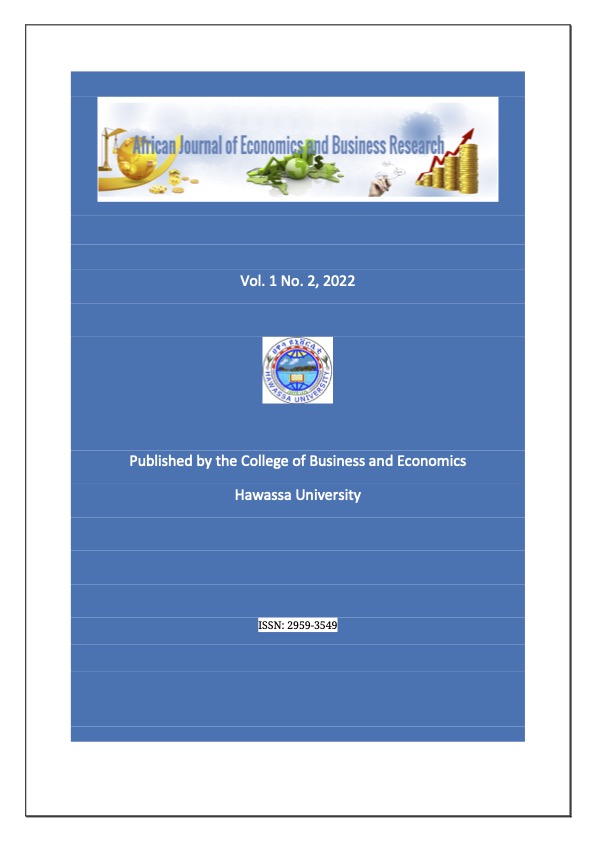The Impact of Government Expenditure on the Economic Growth of Ethiopia
DOI:
https://doi.org/10.20372/g0qvy681Keywords:
Government expenditure, Economic growth, ,ARDL model, Ethiopia, Fiscal policy, Sectoral spendingAbstract
This study used data from 1990 to 2021 to investigate the relationship between government spending and economic growth in Ethiopia. Before estimation, diagnostic tests were conducted to confirm the validity of the model specification and the dependability of the estimators. For estimation, the ARDL model was employed. The results demonstration that defense and health spending have a large short-term positive impact on GDP, but education spending has a significant long-term growth effect. These findings are consistent with Wagner's law and Keynesian theory. Conversely, it has been demonstrated that lagged agricultural spending hurts economic growth. As for the control variables, it has been demonstrated that trade openness hinders growth over the long term, while gross fixed capital formation hinders growth over the short term. On the other hand, an increase in the labor force boosts growth. Overall, the findings imply that government spending can be a useful tool for promoting economic growth, with medium- and long-term development plans paying special attention to education spending.
Downloads
Published
Issue
Section
License
Copyright (c) 2025 Abate Yesigat, Cherinet Beyene

This work is licensed under a Creative Commons Attribution 4.0 International License.
This is an Open Access article distributed under the terms of the Creative Commons Attribution License (http://creativecommons.org/ licenses/by/4.0/), which permits unrestricted use, distribution, and reproduction in any medium, provided the original work is properly cited. The terms on which this article has been published allow the posting of the Accepted Manuscript in a repository by the author(s) or with their consent.

